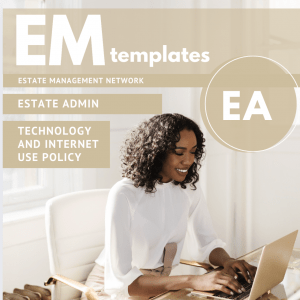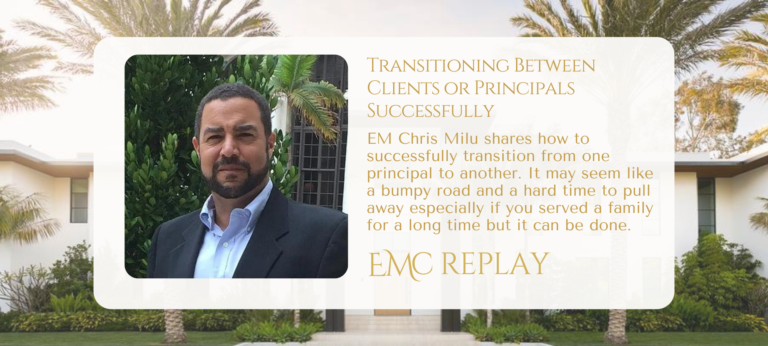Estate operations today rely on technology as much as they rely on trusted staff. Computers, phones, smart systems, and security networks have become essential tools for managing large properties. Along with those tools comes the responsibility to manage them safely and respectfully. A Household Technology and Internet Use Policy provides clear direction on how household staff use digital systems, protect private information, and maintain professional boundaries in a connected environment.
A tech policy defines acceptable use of all technology within the principal’s property. It covers devices and systems such as computers, tablets, phones, cameras, alarms, and smart-home platforms. It should include practical rules on use, security, and conduct. For households that rely on digital systems of any kind, this policy is essential to set expectations that preserve the safety and privacy of residents, guests, and staff.
In an estate manual or household employee handbook, this policy belongs in the operations section alongside communication, confidentiality, and security policies. It provides the structure for how staff interact with household technology and digital information. While other sections of a manual may describe how to manage assets or handle emergencies, this one explains how to protect data and use connected systems responsibly. When integrated with confidentiality agreements and property protocols, it reinforces the household’s culture of trust and professionalism.
Every property has a different mix of devices and systems, and the policy should reflect that reality. If the household uses integrated smart systems, include details about who may adjust settings or access automation controls. For estates with extensive surveillance or access controls, outline how footage, codes, and alerts are managed. If household staff use shared computers or phones, specify how personal and professional use are separated. The policy should reflect the tools and structure of the specific property while maintaining consistent standards of privacy and security.
Language should remain direct, respectful, and easy to understand. The goal is not to limit capable staff, but to give them a clear framework for using technology in a professional way. Estate Managers should review the policy with each new hire and keep it updated as systems change. A strong policy not only protects the principal’s privacy but also protects staff by removing uncertainty about what is acceptable. We’ve created a sample plan to help you in crafting one for your property.
Including a Technology and Internet Use Policy in the estate manual communicates that proper digital conduct is an expectation of household professionalism. It assures principals that their personal information, images, and communications are handled with care. It also gives managers confidence that staff are working within defined boundaries that safeguard both the household and themselves. In modern estate management, technology use is an extension of trust, and this policy ensures that trust is maintained across every connected system.









